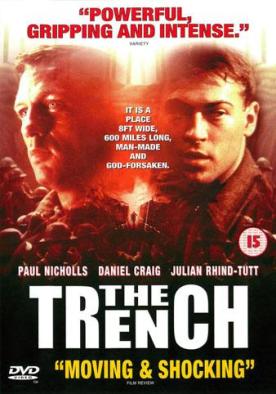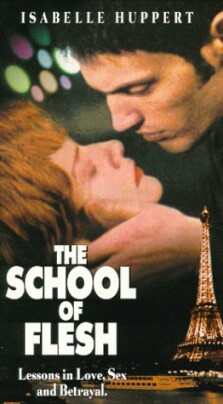Trench, The
Stop me if you’ve heard this one before, but just in case you’ve been living in Borneo for the last 80 years you might not know that the class-ridden British army in World War One was staffed by senior officers who were idiots and junior officers who were amateurish, upper-class twits, while the ranks were composed of wise, good-humored working-class lads, the fine flower of British youth, all of whom were led by the above to senseless slaughter on the Western Front for no other reason than pointless national pride and xenophobic patriotism whipped up by unscrupulous politicians and newspapers at home. Got all that? If you haven’t William Boyd’s The Trench has come — rather late in the day one might have thought — to fix it firmly in your head as the true story of How It Was for the brave doomed lads who went over the top at the Battle of the Somme.
Old Boydy protests too much, methinks. Maybe that was the truth about the War, but why does he have to add his voice to the thousands who have already told us so? Or rather, maybe it is some significant part of the truth, since all of the officers could hardly have been dim, pig-headed aristocrats nor all the men pointlessly sacrificed. It beggars belief that the combatant nations of 1914-1918, whose sacrifices were so immense, should have been laboring under some kind of mass delusion that they were making those sacrifices for some reason when they were really making them for none. Maybe the sacrifices were disproportionate to the gains they stood to make — a judgment that is easy to make in hindsight — but they certainly thought they were fighting for something. And they fought the best they knew how. There is something indescribably crass and vulgar in looking back at them from the comfort — a comfort arguably purchased by their sacrifices — of our own times and concluding that they were all deluded fools.
But as I began by saying, this myth has been around for a long time. It is in fact, like Bolshevism, contemporaneous with the war itself, and it flourished afterwards for many of the same reasons. The anger on all sides that so much had been sacrificed for what amounted in most places to a more impoverished and grief-stricken version of the status quo ante sought out someone to blame. It found its scapegoat in “the class system” and (in many cases) the supposed economic system (“capitalism”) of which it was thought to be a manifestation. Naturally those who claimed to have invented a more beneficent and pacific economic system (“socialism”) or those in sympathy with them had a powerful interest in propagating this myth, and they have been assiduously doing so ever since. It was immensely serviceable to the protestors against the Vietnam war, and it will certainly put in an appearance and register a protest if we ever again attempt a large-scale mobilization of our people for war.
You may get the idea that I look on William Boyd’s redaction of the myth with a jaundiced eye, and I do, but I think I could give it its just deserts if it were better as a movie. Unfortunately, the film’s resources for committing to celluloid images of a vast, continent-wide abattoir — which, it might appear, would be pretty essential for its purposes — appear to have been rather severely limited. For we are obliged to make due with a single platoon of Royal Fusiliers whose experiences during the two days preceding the first day of the Somme (July 1, 1916) and the first moments after going over the top at 7:30 on that morning, are meant to be taken as representative ones.
This limitation is an unfortunate one in any war movie, but especially so in this one where the magnitude of the slaughter is of the essence. If the war that we actually see consists of no more than the words and actions and images of a dozen or so men, plus noises off, we must depend on the very knowledge of history that Boyd is attempting to provide for us in order to fill in the gaps. It is a form of cinematic question-begging that highlights, for me anyway, the continuing importance, even 80 years on, of this particular mythologization of the First World War. The movie itself is just a sort of going-through-the-motions. It never occurs to Boyd that his audience will not be in fundamental sympathy with the view of the war that he is promulgating, which is why he thinks he can afford to assume so much.
Then there is the crudeness of the device of inserting into the midst of the doomed youth a misplaced late 20th century man called Private Daventry (James D’Arcy), an embodiment of authorial smugness, to act as our representative, since he is the only one who appears to know what we know, namely how bloody it’s going to be on the morning of the first of July — the worst casualty figures in the history of the British army. “Jesus Christ, you fools,” says Daventry to the others, “nothing’s working! They” — meaning the Germans — “are just sitting there, waiting for us.” Naturally his Cassandra-like warnings are disregarded. The obviousness of the device is not less than that of having a pompous colonel turn up to give the men a pep talk and tell them: “I want to assure you, men, that after the bombardment you will be able to go over the top with a walking sick….Not even a rat will have survived…Success is guaranteed. . .”
Gee, I wonder if he turns out to be right? But then if you are a believer in the anti-heroic myth you will probably swallow this stuff as easily as the Colonel did the heroic myth. Maybe more easily.
Discover more from James Bowman
Subscribe to get the latest posts to your email.





